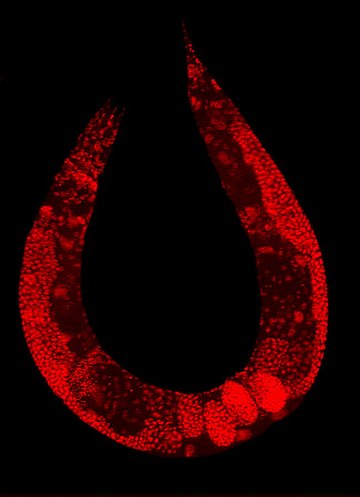Did you know?
You can double click on a word to look it up on TermGallery.
You can double click on a word to look it up on TermGallery.
Meanings of multicellular organism in anglès
rus
многоклеточное portuguès
organismo multicelular espanyol
organismo multicelular català
multicel·lulars 
Usage of multicellular organism in anglès
1
They completed and published the blueprint for an entire complex, multicellular organism.
2
A single cell creates surprising heterogeneity in a multicellular organism.
3
Development of a multicellular organism requires precise coordination of cell division and cell type determination.
4
Only once in history have scientists described the full connectome of a living multicellular organism.
5
When they have been fertilised, the multicellular organism is formed from them by repeated segmentation.
6
IricES1 is the only prokaryote known to exist within the mitochondria of any animal or multicellular organism.
7
Our study demonstrates how, by metabolic reprogramming, a multicellular organism adapts to drastic and rapid functional changes.
8
Suppression of cell lineage selection by the multicellular organism has greatly restricted a once vibrant and multifarious level.
9
The unicellular organism can by its very nature transform itself into a multicellular organism only by the method of cell-division.
10
These cells are separate living beings; they are the citizens of the State which the entire multicellular organism seems to be.
11
This cell produces a cluster of cells by segmentation, and from these develops the multicellular organism, or individual of higher rank.
12
The multicellular organism was a colony of unicellular organisms, and its life was a sum of the lives of its constituent elements.
13
To date, it is not clear how different cell types achieve the variable strength of cell-cell adhesion clearly needed in a multicellular organism.
14
Every day, beginning from the moment you become a multicellular organism in your mother's womb, the cells of your body acquire new mutations.
15
Thus we have confirmed that the central nervous system is not involved in the induction of anhydrobiosis, even in this complex multicellular organism.
16
The Gene Ontology Consortium (GOC) has expanded areas of the ontology such as cilia-related terms, cell-cycle terms and multicellular organism processes.
This collocation consists of:
Translations for multicellular organism
portuguès
Multicellular organism through the time
Multicellular organism across language varieties

United States of America
Common

